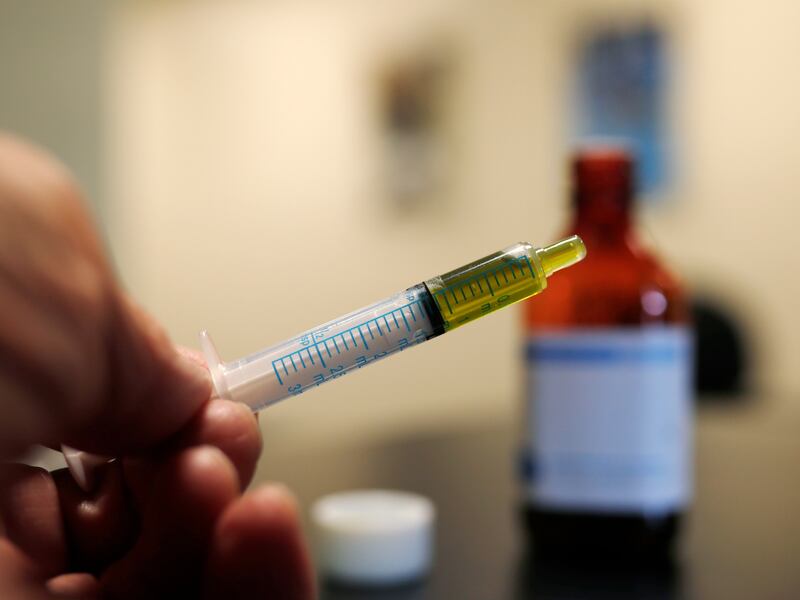Like many, we were skeptical of early claims about the medicinal value of cannabis, assuming it was only a smokescreen for justifying recreational pot use. Our views changed after learning from the firsthand accounts of cannabis patients and the growing medical support for cannabis-based medicines, particularly the non-psychoactive ingredients.
A growing consensus among Utahns is now calling for legislation to alleviate the suffering of those who can benefit from medical marijuana. But Utahns should not settle for the one-sided and poorly crafted marijuana initiative known as Prop 2. While the initiative seeks to alleviate suffering, it comes at the cost of unravelling significant protections for public health and safety. Simply put, Prop 2 violates the first principle of responsible medicine to “do no harm.”
Here are five likely scenarios to unfold if Prop 2 passes.
1) An 18-year-old high-school student learns by word of mouth that it’s easy to obtain a “marijuana card” by complaining of “chronic pain.” After a one-time visit to a local physician, the teenager receives a card and obtains four ounces of marijuana every month, the equivalent of eight joints a day. Under Prop 2, parents have no right to learn if their teens obtain marijuana cards, and the state of Utah has no right to sanction physicians for liberally dispensing cannabis cards to persons as young as 18 years old.
2) Police stop a person who possesses an unusually large amount of marijuana. The individual is a drug dealer who obtained a medical cannabis card (complaining of chronic pain) in order to conceal his illegal trade. If the dealer can show a cannabis card and labels from any legally purchased marijuana (or if the dealer lives more than 100 miles from a dispensary), Prop 2 requires the police to presume the dealer’s marijuana is legal, but does not provide a realistic way for the police to verify the labels match the dealer’s marijuana. Prop 2 also requires the deliberate destruction of state cannabis records after 60 days to prevent federal prosecution.
3) A cannabis card holder carelessly gets high on marijuana obtained from a legal dispensary and then causes a fatal automobile accident. Because there’s no evidence the driver consumed marijuana while driving, Prop 2 makes it ambiguous whether the intoxicated driver may be charged with a felony DUI.
4) A homeowner learns the tenants in its basement apartment regularly vaporize marijuana in violation of federal law and against the wishes of the homeowner. (Prop 2 prohibits smoking marijuana, not vaporizing it.) Because one of the tenants is a medical cannabis card holder, a lawyer advises the landlord that evicting the tenants could run afoul of Prop 2’s nondiscrimination provision, while allowing them to stay could expose the landlord to penalties for facilitating a federal crime.
5) A marijuana dispensary deliberately cultivates strains of marijuana with very high amounts of psychoactive ingredients to attract a clientele who are primarily interested in the intoxicating effects of marijuana. Prop 2 does not regulate cannabis dosages or potency, allowing for marijuana cultivated for recreational use to be disguised as medicine.
Prop 2 doesn’t address these consequences because it hasn’t undergone the usual give and take of legislative compromise. We don’t doubt the sincerity of Utah’s medical cannabis community, but there’s also no denying the outsized influence by out-of-state lobbying groups.
Prop 2’s single largest donor, the Washington, D.C.-based Marijuana Policy Project, “played a key role” in drafting the initiative. For those who’ve heard Prop 2 is just about medical marijuana, take note that the motto of this national lobbying arm of the marijuana industry is “We Change Laws!” and their unequivocal mission is to legalize recreational marijuana use across the United States.
That’s not the Utah way. Our state has a unique opportunity to change the dynamics of medical marijuana, forging a compromise between the serious advocates of medicinal use and the conscientious medical, civic and police associations opposed to its misuse. Such a compromise would follow the pattern chartered by the Utah Compact on immigration policy and the Utah Compromise on nondiscrimination laws. We need a “Utah Consensus” on medical marijuana.
It could come at just the right time. In June, the Food and Drug Administration approved the first drug comprised of an active marijuana ingredient to treat severe forms of epilepsy. This new drug contains only cannabidiol, or CBD, which is not intoxicating, in contrast to marijuana’s more well-known psychoactive ingredient tetrahydrocannabinol, or THC. As the Food and Drug Administration commissioner explains, “Controlled clinical trials testing the safety and efficacy of a drug, along with careful review through the Food and Drug Administration’s drug approval process, is the most appropriate way to bring marijuana-derived treatments to patients.”
The FDA’s approval is a groundbreaking development. The Drug Enforcement Agency has publicly announced that CBD will be downgraded from a Schedule I drug under the Drug Enforcement Agency’s Controlled Substances Act, allowing for a “sea change” in research and development of cannabis-based drugs.
In the wake of the opioid epidemic, we need more — not less — thoughtful policies on drugs to balance the benefits of medical use against the risks of abuse. Utahns wary of triggering another legally enabled drug crisis should vote “No” on Prop 2.

